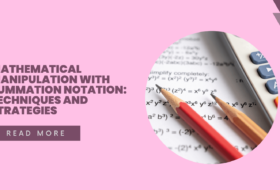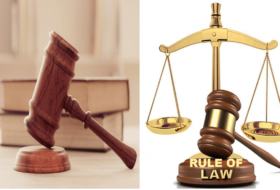Education evaluation is an important component of educational management. It is used to assess and evaluate the impact of teaching and learning on students.
Education is the process of providing learning experiences together with knowledge, skills, values, beliefs, habits, and attitudes. The educational system is a network of experts working in organizations including schools, unions, statutory boards, and government departments.
Political leaders, principals, instructional staff, support staff, administrative staff, and other educational professionals collaborate to enrich and improve the educational system. Management, which entails an institution’s planning, organizing, implementation, review, evaluation, and integration, is necessary at all levels of the educational ecosystem.
In today’s article, I will discuss the different education evaluation methods used in educational management. Let’s begin with the meaning of educational management.
Table of Contents
What is Educational Management?
Educational management is the administration of the education system in which a group combines people and material resources to supervise, organize, strategize, and implement structures to execute an education system.
Educational management, which is also sometimes referred to as educational administration, is frequently associated with elementary and secondary schools as well as higher education institutions like colleges and universities. Professionals in education management can also be found working in private businesses, not-for-profit organizations, and government agencies.
Educational managers might work on education policy, study, or consult to help evaluate and come up with ways to improve the educational system at every level. Most people who work in educational management have at least a master’s degree, and many of them are licensed teachers or principals.
The application of techniques, instruments, and knowledge is the goal of the field of educational management, which aims to improve the performance of educational institutions in a particular nation. In the sense that it tries to view the educational process as a systemic, organized whole, it is a type of educational administration.
As a result, educational management can be viewed simultaneously as a discipline, a procedure, and a strategy that intervenes in the educational system to enhance its various stages. It encourages the integration of the various components of the educational process—students, teachers, and the community.
An educational community that overcomes the obstacles traditionally associated with education, such as school dropout and poor academic performance, is formed. It also exchanges information and provides feedback.
Hence, educational management encompasses a wide range of activities with the goal of bringing together education and society:
- establishing, creating, and maintaining the fundamental educational infrastructure, including schools, colleges, universities, libraries, museums, hostels, etc.
- upkeep of academic records
- evaluating student performance and keeping an eye on student behavior
- Keeping track of supply inventories for items like office supplies, books, hardware, digital equipment, building infrastructure, lab equipment, etc.
- scheduling classes, training, exhibits, seminars, and presentations, among other things
- ensuring order, coordination of work across all departments, and cooperation with educational authorities
- Create the course materials for lectures, tests, internal assessments, final exams, etc.
- managing resources, spending, social services, and the general well-being of every system user
The management of education is a continuous process that involves numerous tasks and duties. So, a balanced mix of constancy and dynamism is the foundation of effective educational management.
Mention the Different Education Evaluation Methods you know
Formative Assessment
Formative assessment is a common method of school evaluation. To encourage students to learn more effectively, educators or teachers conduct formative assessments multiple times throughout an academic year. You can use this kind of evaluation to help students understand their weaknesses because it is done repeatedly. Formative assessment tests can be used to assess how well students understand a particular section of the curriculum. If you want to see how well the students understand something, this would be an excellent approach.
Summative Evaluation
At the conclusion of an academic year or course, summative evaluation tests are administered. The promotion of students to the next stage of their learning journey is determined by this evaluation, which plays a crucial role in a student’s academic career. After completing summative exams, students frequently receive certificates that include information about their summative exam scores.
Diagnostic Evaluation
Diagnostic evaluations and formative assessments are very similar. This evaluation is helpful in identifying the students’ learning shortcomings. This approach can be used to help students comprehend their weaknesses. They will be able to make adjustments to the learning process and succeed academically once they comprehend the weaknesses in their learning.
Prognostic assessment
The purpose of a prognostic evaluation is to estimate and foresee a person’s future. An analysis of talents and potentials in a prognostic evaluation adds a new dimension to the findings of an assessment: the individual in question’s future development, in addition to the necessary conditions, timeline, and constraints.
Normal referenced evaluation
This kind of assessment focuses on comparing students’ relative performance, either by comparing the results of individual students in the group being evaluated or by comparing their performance to that of others of a similar age, background, and experience. It affects how students are arranged in the group.
Criterion-referenced assessment
A criterion-referenced evaluation describes a person’s performance in relation to a predetermined performance standard. It describes the accuracy of a student’s performance, or how well the student performs in relation to a particular standard. To put it another way, it’s similar to comparing a student’s performance to a set standard.
What is Library?
A library is a collection of items, such as books or movies, that may be used instead of just being displayed. A library is a place where people can go to borrow books in person or online. It can also be both.
Printed materials and other tangible resources in a variety of formats, such as DVDs, CDs, and cassettes, as well as access to data, music, and other items stored in bibliographic databases, can all be found in a library’s collection.
Traditional definitions of a library include a collection of books used for reading or research as well as the structure or space where such a collection is stored. The word comes from the Latin word liber, which means “book,” whereas the words for a library in German, Russian, and Romance come from the Latinized Greek word bibliotheca.
What is expected from an up-to-date Librarian?
To ensure that patrons have the resources they need to learn about and investigate issues of interest, a librarian, also known as a curator, is in charge of managing the day-to-day operations of a library.
Their responsibilities also include managing a team of employees to do daily chores, maintaining library databases, and developing educational programs for various age groups.
To effectively administer a library, a competent librarian combines a love of books with great interpersonal and computer abilities. To stay current on library trends and materials, librarians need to be strong readers in addition to having a natural tendency to operate in a media-driven workplace.
To communicate with a wide range of people, librarians employ their interpersonal and communication abilities. They must connect with library users and present a positive image. Additionally, librarians communicate with personnel and academic researchers who are working on publications.
With the increased use of technology in libraries, having computer skills and technological knowledge has become crucial. The operation of computer search databases and the use of software for administrative activities are skills that librarians must possess. Additionally, the requirement to provide tools and services that people desire makes innovative thinking crucial.
Good librarians are also very good at addressing problems. These skills are put to use in order to define research problems and to perform or help with resource searches. Additionally, librarians must find solutions to issues that arise from maintaining an effective and efficient library within a community. Initiative and assertiveness are closely associated in that they both become necessary when a library requires updating and funds need to be raised.
An up-to-date librarian is also expected to:
- Love reading a lot. After all, it is the focus of their entire professional life. All genres of books for all age ranges are read by librarians. It is important for librarians to be aware of hot and trending books.
- Be really organized and focused on the details. The management of media collections makes up a significant portion of a librarian’s duties. This covers media like music, movies, and novels. They must be extremely organized and pay close attention to every little thing a result.
- Follow technological trends. Utilizing technology in libraries is a crucial part of a modern librarian’s profession, according to the U.S. Bureau of Labor Statistics. Card catalogs on paper are a thing of the past. Librarians are responsible for using and maintaining the enormous amount of technology used in modern libraries, including computers used by users, services for borrowing digital content, systems and software used by library employees, and more.
- Excel as a researcher. To assist them in deciding which items should and should not be added to their collections, librarians conduct extensive research on what is popular. Additionally, they must determine which items are no longer popular enough to warrant keeping in the collection and removing them.
- Be devoted and self-controlled. Bookkeepers much of the time are compelled to work with little financing on the grounds that either the assets aren’t accessible or are decided to be more required somewhere else. Passion and a strong commitment to their careers and the work they do are therefore major characteristics of a librarian. The best librarians are disciplined and keep up with a variety of tasks, like reshelving books and updating catalogs.
An examination is not the true test of knowledge, Discuss
According to Google’s definition, an examination is a formal test taken to demonstrate knowledge or ability in a particular field or to earn a certification.
A test, according to the Oxford Advanced Learner’s Dictionary, is an examination of a person’s knowledge or ability that consists of activities or questions that they must complete.
The definition of knowledge in the Cambridge Dictionary is “the understanding of or the information about a subject that you get from experience or study, either known by one individual or by people generally.”
Exams and tests are closely related, but they are not the same thing, as the above definition shows. While tests are meant to test your knowledge of a specific lesson, examinations are meant to test one’s knowledge of several lessons.
In general, it is possible to make a convincing case, supported by solid facts, that examination is not a genuine test of knowledge.
Exams typically assess a student’s capacity to memorize information rather than their ability to fully comprehend what was taught. Because they have the ability to memorize for the exams, which were supposed to be carried out in order to ensure students understood what was taught, a student with a very good memory would not fully know what was taught in class to be able to pass the exams.
However, they would still be able to pass the exams. Consequently, this tends to render the examination’s ultimate objective meaningless; and this implies that only memory retention is tested.
Second, intelligence can’t be measured by looking at it. Edward de Bono asserts, “Many extremely intelligent people are poor thinkers.” A lot of people with average intelligence can think well. A car’s driving style separates its power from its power. The purpose of exams was to distinguish intelligent people from inept ones.
It is beyond the realm of possibility to expect to decide somebody’s insight by making them take tests in light of the fact that as prior pointed out, a few understudies have great retaining abilities. They have such excellent memory that they could simply record everything they saw in their notes and receive higher grades than students who actually engaged in creative thinking.
Thirdly, tests do not tell a person if they will succeed in life. They simply serve as a skill-testing exercise, which is not always accurate. Students are taught a variety of formulas that they will not use in life rather than money-making and life skills that are taught in schools. As a result, even if a student passes the A-level exams they took, they will not succeed in life.
The fact that students have different abilities is the fourth point. An understudy who is great in music or writing probably won’t be great in Math and Material science however similar tests are given in spite of the various capacities of the understudies.
This means that students’ grades cannot be considered an objective indicator of their intelligence. Students grades shouldn’t matter because the examiner has a greater impact on the exam’s outcome.
The fact that a student receives low grades does not imply that they are not intelligent or that they are not committed to their studies and work. It simply indicates that their learning capacities differ. While some grasp at a relatively faster rate than others, others might do so more slowly.
In conclusion, examinations should not be used as a true test of knowledge or intelligence, even though they are important tools for evaluation and assessment.
Conclusion
The concept of education management is important to students, parents, teachers, education administrators, and the government. To assess the impact of learning, education evaluation techniques are employed.
This article effectively discussed these concepts as a reference for researchers and educationists. As the case is, vital information may have been omitted in the article, hence, it’s your turn to respond. You are required to suggest possible additions to the concepts or ask questions in relation to the concepts discussed. Please, use the comment box below for your feedback.




